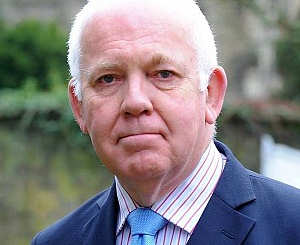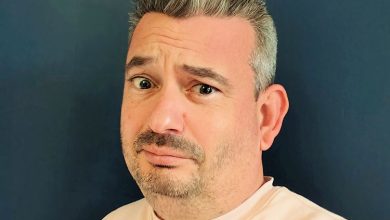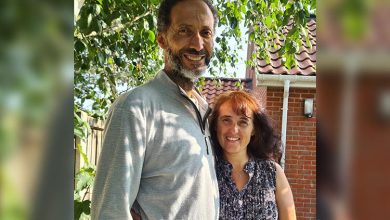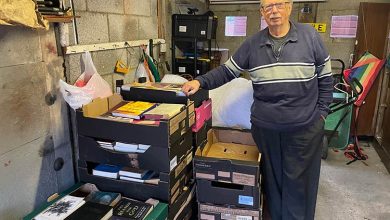Opinion
Faith helps William deal with life and death

William Armstrong is a remarkably mild, gentle and empathic. I felt I was talking with a therapist rather than a lawyer, with years of experience in the criminal and family courts.
Clearly these qualities were of great benefit to all those who found themselves in his court during his 19 years as Norfolk Coroner. Years that gave him an enduring interest in the prevention of suicide and the improvement of care for those suffering mental illness.
Each suicide that came before him raised questions of how co-ordination between services could be improved; by compassionate and professional care; and good communication between GPs and community services.
He is strongly opposed to defining a person by a label, insisting on the need to care for the whole person, and is very concerned about the impact of cuts in mental health services. Mental illness can be treated, and suffering reduced, so it is frustrating when people fail to receive treatment, because their illness is not recognised or given a label like “personality disorder” so as to rule out active treatment.
“We are all creatures of a loving God. Everyone has something unique to give, and should have their good qualities recognised,” he said. As Coroner, Williams said he: “always managed to say something positive about the person who had died.”
William is Norfolk born and bred, choosing to live in the countryside and be a part of his small local church community as well as fulfilling his role as a Lay Canon of Norwich Cathedral.
“Faith and belief cannot be divorced from the life we live, so a Christian will always work towards a more just and equal society,” he said. “Worship is about praising God, and responding to God’s love for us.”
The Eucharist is central to his faith, and he can well understand the sense of fellowship and continuity, combined with awareness of the sacrifice of the cross; as a power to transform the lives of those suffering from mental distress.
His is a faith with more questions than answers, and he approaches the strong beliefs of others with openness and respect; confessing the incoherence of his own faith. When he has to reach an important decision he tries to be aware of his own prejudices and not to prejudge anyone, listening carefully and keeping an open mind.
He is now chairman of health watchdog Healthwatch Norfolk, which seeks to ensure that less fortunate people gain access to health care. At present the average age at death of a homeless person is 47. The gap between rich and poor is widening, so that an alienated underclass is growing.
William has been involved with Nelson’s Journey, the Norfolk charity that supports bereaved children, and adult bereavement counselling organisation Cruse, whose national conference he will be addressing later this year.
“Every journey of grief is unique. Well trained volunteers providing the right support at the right time can prevent long term damage,” he said.
William has a long involvement with Norfolk Community Law Services, which helps people appealing against tribunal decisions on benefits, housing repossession and other court support that does not qualify for legal aid. Why cause distress by taking people off benefits, when so many have to be reinstated on appeal?
“Stewardship is about recognising that this is God’s world, not ours, and we can use our talents, the whole of our lives, not just our money, to make His world a better place,” he said.
Pictured above is William Armstrong.
Click below to read the previous articles in this series
George Szirtes and Clarissa Upchurch
Richard Bacon
Hilary Cox
Rupert Read
Goff Hope
William Armstrong
Richard Jewson
Henry and Ski Cator
Paddy Seligman
Read the full article here








Hello just wanted to give you a quick heads up and let you know a few of the pictures aren’t loading properly. I’m not sure why but I think its a linking issue. I’ve tried it in two different browsers and both show the same outcome.